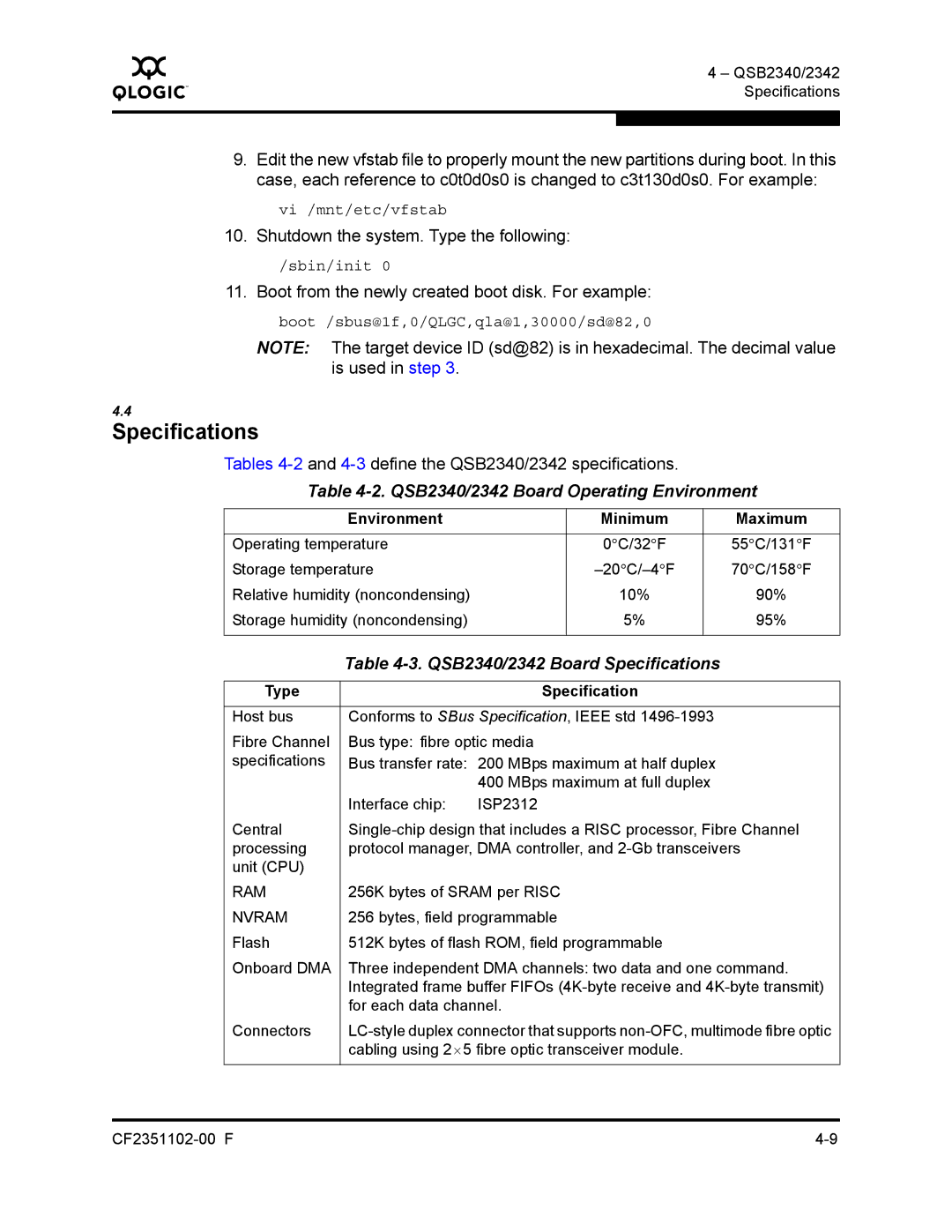
Q
4 – QSB2340/2342 Specifications
9.Edit the new vfstab file to properly mount the new partitions during boot. In this case, each reference to c0t0d0s0 is changed to c3t130d0s0. For example:
vi/mnt/etc/vfstab
10.Shutdown the system. Type the following:
/sbin/init 0
11. Boot from the newly created boot disk. For example:
boot /sbus@1f,0/QLGC,qla@1,30000/sd@82,0
NOTE: The target device ID (sd@82) is in hexadecimal. The decimal value is used in step 3.
4.4
Specifications
Tables 4-2 and 4-3 define the QSB2340/2342 specifications.
Table 4-2. QSB2340/2342 Board Operating Environment
Environment | Minimum | Maximum |
|
|
|
Operating temperature | 0°C/32°F | 55°C/131°F |
Storage temperature | 70°C/158°F | |
Relative humidity (noncondensing) | 10% | 90% |
Storage humidity (noncondensing) | 5% | 95% |
|
|
|
Table 4-3. QSB2340/2342 Board Specifications
Type |
| Specification |
|
| |
Host bus | Conforms to SBus Specification, IEEE std | |
Fibre Channel | Bus type: fibre optic media | |
specifications | Bus transfer rate: | 200 MBps maximum at half duplex |
|
| 400 MBps maximum at full duplex |
| Interface chip: | ISP2312 |
Central | ||
processing | protocol manager, DMA controller, and | |
unit (CPU) |
|
|
RAM | 256K bytes of SRAM per RISC | |
NVRAM | 256 bytes, field programmable | |
Flash | 512K bytes of flash ROM, field programmable | |
Onboard DMA | Three independent DMA channels: two data and one command. | |
| Integrated frame buffer FIFOs | |
| for each data channel. | |
Connectors | ||
| cabling using 2⋅5 fibre optic transceiver module. | |
|
|
|
